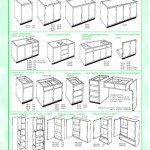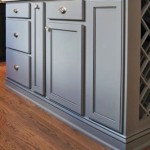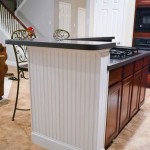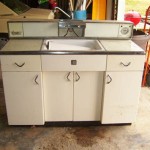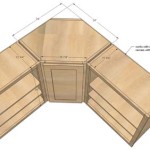Ants in Kitchen Cabinets: Understanding, Preventing, and Eliminating Them
Ants are common household pests that can quickly become a nuisance, particularly in the kitchen where food is readily available. Kitchen cabinets offer an ideal hiding spot for these tiny creatures, providing shelter and access to food scraps and crumbs. Understanding the factors that attract ants to kitchen cabinets and implementing effective prevention and elimination strategies is crucial for maintaining a pest-free kitchen.
Understanding Ants in Kitchen Cabinets
Ants are primarily attracted to food sources, including sugar, starch, and grease. Kitchen cabinets often contain food items such as bread, cereals, and sweets, which emit enticing scents that attract ants. Additionally, crumbs and spills on cabinet surfaces and floors provide an easy meal for these pests.
Ants also require moisture to survive. Kitchens, with their sinks, dishwashers, and humid environments, provide ample moisture sources for ants. Leaking pipes, overflowing sinks, or wet pet food bowls can further exacerbate the problem.
Preventing Ants in Kitchen Cabinets
Prevention is key to keeping ants out of kitchen cabinets. Regular cleaning and proper food storage can significantly reduce the risk of an infestation.
- Clean thoroughly: Wipe down kitchen cabinets, countertops, and floors regularly to remove food crumbs and spills. Use a vacuum cleaner with a crevice attachment to clean hard-to-reach areas.
- Store food properly: Keep food items in airtight containers or the refrigerator. Avoid leaving food out overnight or on counters.
- Seal entry points: Inspect cabinets and other potential entry points for cracks or holes. Seal any gaps with caulk or expanding foam.
- Trim vegetation: Remove overgrown bushes or trees near the house that may serve as an ant highway.
- Maintain moisture levels: Fix any leaks or other sources of moisture to eliminate attractive conditions for ants.
Eliminating Ants in Kitchen Cabinets
If ants have already invaded your kitchen cabinets, swift action is necessary to eliminate them and prevent further infestations.
- Identify the type of ant: Different ant species require different treatment methods. Consult with a pest control professional to determine the best approach.
- Use bait traps: Ant bait traps attract ants with a sweet substance and contain an insecticide that the ants carry back to their colony, eliminating the infestation.
- Apply insecticide sprays: Insecticide sprays can be effective in killing ants on contact. Use sprays labeled for indoor use and follow the instructions carefully.
- Use natural repellents: Natural repellents such as cinnamon, peppermint oil, and diatomaceous earth can deter ants from entering cabinets.
- Contact a pest control professional: Severe ant infestations may require professional assistance. Pest control companies have specialized equipment and expertise to eliminate ants effectively and prevent future problems.
Conclusion
Ants in kitchen cabinets can be a pesky problem, but understanding their behavior and implementing effective preventive and elimination measures can help keep your kitchen ant-free. Regular cleaning, proper food storage, sealing entry points, and timely treatment of infestations are all essential elements of maintaining a pest-free kitchen environment.

6 Things You Should Know About Ants In The Kitchen Ant Control

Why Are There Always Ants In My Kitchen Terminix Triad

How To Get Rid Of Ants In The Kitchen 5 Surprising Ways Avoid An Infestation At Home Express Co

How I Stopped An Ant Home Invasion In Thailand The Wayfaring Soul

Keeping The Kitchen Free From Pests Accurate Pest Control Ny

How To Deal With Tiny Ants On Your Kitchen Counter In New Jersey

Ants Getting In The House Hulett Environmental Services

Tiny Ants In Your Kitchen Around The Sink No More Worst Room

6 Tiny Black Bugs In Kitchen Cupboards

How To Keep An Ant Free Kitchen Healthy Home Termite And Pest Control
Related Posts

